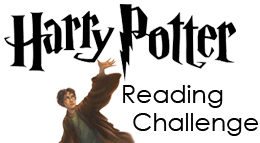 Your Best Birth
Your Best Birth is about knowing your birthing options and not feeling pushed around by doctors who often seem to disregard maternity patients' wishes. Or at least, that's what the book says. I don't know what it's like to have a baby in a hospital in the US; I probably never will. But I know my own mom's experience (at least, when she had me) was less than satisfactory, and she's still a little bitter, I think, about the treatment of OB-GYN gave her. If she'd felt there had been other options, she might have tried them.
So, here's breaking the news: I am pregnant; I'm at the beginning of my second trimester. And I remember two people singing the praises of this book: Jenn at
Devourer of Books, who had a baby last year, and
Dooce, who also had a baby last year.
Now, of all my generation in my family--several cousins, a sister--only one of them hasn't had a C-section. I don't know the particulars about why all of them had C-sections (except my sister--my niece was floating around in her placenta, basically swimming laps, and wouldn't stay heads-down), but I don't want surgery. And I certainly don't want to be pushed into it because of hospital protocols, which is often, apparently, what happens. I am also in love with the idea of a birthing pool, ever since I read on
Pacing the Panic Room about
the birth of Tessa Tangerine. (I started following Pacing the Panic Room because I loved the pictures he was taking of his wife every week of the pregnancy.)
My sister says she hates books
like
Your Best Birth because their goal is that everyone has a totally natural birth and they make you feel guilty if you want pain meds or if you have a C-section--which is how her prenatal classes made her feel. My response was that, yes,
Your Best Birth is really heavy on supporting the decision to have a drug-free labor, home birth, midwives, doulas, and all of that. But mostly, they just don't want you to feel pushed into having a less-than-joyous birth experience you didn't need to have; they want you to have more facts than you're likely to get from hospitals and doctors. They acknowledge that C-sections are sometimes necessary (though there are an alarming number of elective C-sections) and that after 24 hours of labor, you really might need an epidural to keep going. And that's FINE. What you need, you get. But they don't want you to be pushed into having an epidural by the nurses who pop in every half hour or forty-five minutes to ask if you're ready to have an epidural yet, or get jacked full of Pitocin on Tuesday by the doctor who really wants to go away Thursday night to start a long weekend instead of waiting for your labor to start/progress naturally.
Also, Lake & Epstein provide lists of questions for doctors, midwives, doulas, etc., as well as a history of widwifery (really interesting) and a general (if a little biased) overview of the birthing industry in the US. They also made a documentary, which I haven't seen but would like to, called
The Business of Being Born.
Now, unfortunately, I don't think BC's health care--or the health care from my husband's employer--would pay for a midwife and doula for a home birth. In fact, I am pretty sure there aren't any truly qualified midwives in my town, and to get a midwife to deliver my baby, I'd likely have to go to Vancouver Island. So I think the homebirth in a tub is out.
Fortunately, my doctor says that here in BC, they approach pregnancy and labor a little differently, with as few interventions as possible. There are showers and tubs for laboring moms at the hospital and they won't hook me up to an IV--or even put a needle in, in case I need one later--unless it becomes absolutely necessary. And I can feel free to walk, squat, whatever positions I want. I feel much better knowing that.
Of course, I have yet to take a look at the maternity ward here. There's only one hospital in town, so I have pretty limited hospital options (again, unless I want to take ferry to Vancouver Island while I'm in labor). But I've heard nothing but good things about its maternity ward, and I find it pretty comforting that most women in town receive their prenatal care from their general practitioners rather than an OB-GYN. There's only one OB-GYN and he's the prenatal care for high risk pregnancies and otherwise, expectant moms only see him for emergency C-sections (though I'm told he's also skilled with forceps and can be called in for that as well).
I'm really glad I read this book, because I don't think I would have considered that there are options other than hospitalization to have a baby, or that doctors could have ulterior motives for offering epidurals or kick-starting labor, or that there are so many options even if you choose to go to a hospital. I strongly encourage other pregnant women to read this book--even if you've already had children. It's fascinating.































